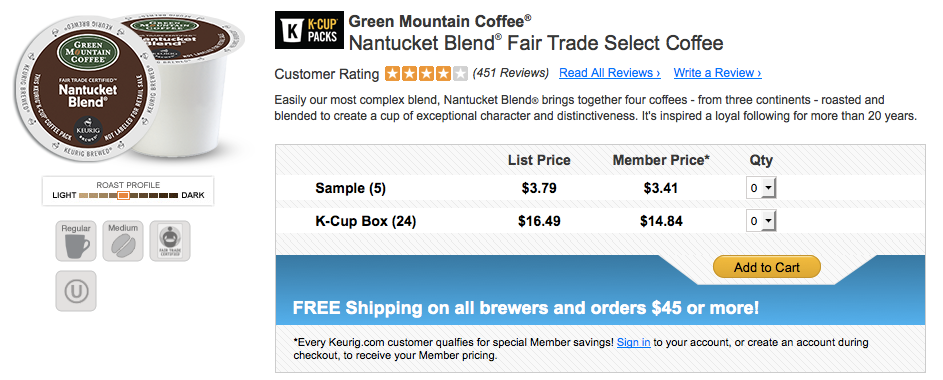Something big is happening to coffee. One after another, major players in the market have announced plans to raise their prices. The cost of packaged coffee sold in stores from Starbucks and Dunkin’ Donuts and Maxwell and you-name-it is rising between 8 and 10 percent to compensate for the increased prices of blighted and drought-stricken coffee beans. Many of those price hikes have already taken effect. But some—like the up-to-9-percent raise for Keurig Green Mountain Coffee’s K-Cups—don’t hit until the fall. And herein lies a great business opportunity.
Call it coffee arbitrage. Coffee sellers are raising prices by a specific amount on a specific date in the future—creating the chance to buy low and sell high in quick succession. For example, on Nov. 2 a 24-pack of Green Mountain Coffee’s Nantucket Blend K-Cups will likely cost $16.49 (its current list price). But the following day, that same 24-pack could go for as much as $17.97. That means if you bought the pack on Nov. 2 and resold it the next day at its new list price (or more realistically, slightly less than that), you could make a profit of $1.48 on the exchange.

Screenshot from Keurig.com
Now for the real question: Could you make a lot of money off of coffee arbitrage? Gabriel Chodorow-Reich, a professor of economics at Harvard, tells me that he’s skeptical. First, he says, you’d want to sell the K-Cups as close to the time of the price increase as possible so that inflation didn’t eat away at your potential profits. Second, to carry out the operation on a big enough scale to make real money, you’d need to consider some logistics: Where will you get the money to buy large quantities of K-Cups? How will you pick them up? And once you’ve acquired them, where will you store them? Then there’s the opportunity cost of buying and holding the coffee—the money you use for that can’t be used for anything else. And finally, to sell everything quickly, you’re going to need some sort of distribution network.
“Could you do it? Maybe,” Chodorow-Reich says. “But you sort of have to run through the storage costs and the opportunity costs of your money and the time and the distribution network and weigh all that against the price increase.” Because of all this, coffee arbitrage is unlikely to meet the technical definition of arbitrage: a sure possibility of making money with no possibility of losing money. “In this case, it can’t just be that you buy up a bunch of beans and think you’ll be able to resell them—you have to lock in a futures contract for those beans once the price has gone up,” he says.
If you do attempt coffee arbitrage, K-Cups are likely your safest bet—they’ll keep longer than coffee beans, which you’d need to unload before they spoil. And at any rate, law professors say that attempting to make a buck off rising coffee prices is a legitimate business venture. “I’m happy to report that this raises no legal issues—you are free to buy and sell coffee in massive quantities,” Ryan Bubb, a professor at New York University School of Law, emailed. It might not be the next gold rush, but the window for coffee arbitrage is open and now is the time to act.
